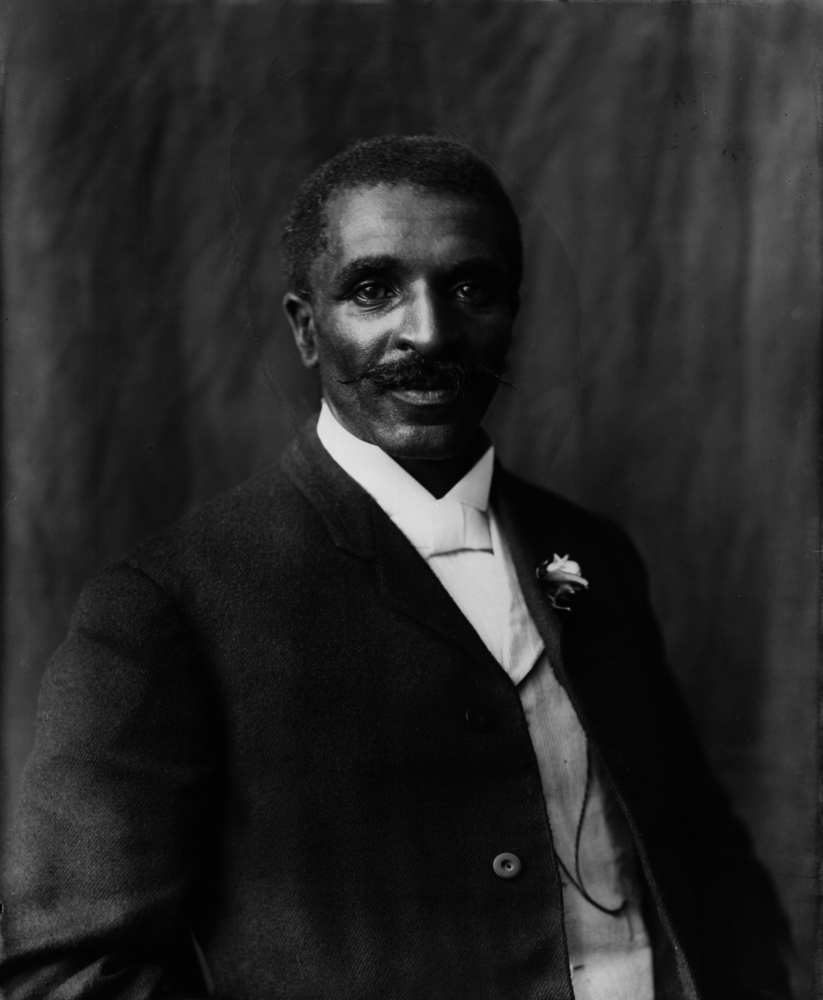Beyond the Peanut: 10 Interesting Facts About George Washington Carver

When the name George Washington Carver is mentioned, the first thing that likely springs to mind is his remarkable work with peanuts. However, Carver’s legacy stretches far beyond his innovative uses for this humble legume.
An esteemed American agricultural scientist and inventor, Carver was a pioneer in his field, dedicating his life to understanding nature and applying his knowledge for the betterment of society. His contributions to agricultural science reshaped the landscape of American farming, but his impact didn’t stop at agriculture.
Carver’s work paved the way for nutritional advancements and economic growth, touching the lives of countless individuals.
This blog post aims to peel back the layers of Carver’s association with peanuts to reveal a man whose genius and generosity of spirit led to innovations that still resonate today.
Join us as we explore 10 intriguing facts about George Washington Carver, a figure whose contributions extended well beyond the peanut, influencing environmentalism, education, and much more.
Early Life and Education
George Washington Carver’s early life was marked by extreme hardship and adversity, laying the foundation for a story of resilience and exceptional intellect. Born into slavery in Diamond, Missouri, during the Civil War, Carver and his family faced immediate challenges.
However, the abolition of slavery by the end of the war marked the beginning of Carver’s lifelong quest for knowledge and self-improvement.
Despite the monumental barriers erected by racial discrimination, Carver’s thirst for education was unquenchable. He initially had to move several miles to Neosho for his early education due to the absence of schools for black children in Diamond.
Carver’s academic pursuits eventually led him to become the first African American to enroll at the Iowa State Agricultural College (now Iowa State University), where he not only excelled but also earned both his bachelor’s and master’s degrees in agricultural science.
His remarkable achievements during this period showcased not only his unparalleled determination to overcome obstacles but also his intellectual brilliance, setting the stage for his groundbreaking contributions to agricultural science and education.
The Peanut Revolution
George Washington Carver’s “Peanut Revolution” marked a significant shift in agricultural practices and economies in the early 20th century. His extensive research into peanuts resulted in the development of over 300 by-products, ranging from food items like peanut butter to industrial products such as dyes, paints, and cosmetics.
This work did not simply broaden the uses of peanuts; it revolutionized the way farmers approached crop production. By diversifying the crops they planted, farmers could now enhance their soil’s health and reduce dependency on cotton, which was depleting the land.
Carver’s innovations significantly contributed to the sustainability of agriculture in the American South, giving farmers profitable alternatives and thus boosting their economic stability.
Beyond agriculture, his peanut-related nutritional research offered new food sources, enriching diets and influencing food industries. Carver’s work propelled peanuts from a simple crop to a pivotal element in both agricultural economies and everyday nutrition, showcasing his profound understanding of agriculture’s potential to drive societal and economic change.
Pioneering Crop Rotation
Carver’s visionary approach to agriculture extended into the realms of sustainability long before the term became a keyword in environmental discussions. He championed the practice of crop rotation, a method where different types of crops are planted in the same area in sequential seasons.
This technique plays a pivotal role in maintaining soil health, reducing pest and disease problems, and improving crop yields. By alternating soil-depleting crops like cotton with soil-enriching legumes such as peanuts and soybeans, farmers could sustainably manage their resources and enhance productivity.
Carver’s advocacy for crop rotation represented a radical departure from the prevailing agricultural practices focused solely on mono-cropping, which left soil exhausted and unproductive. His teachings and demonstrations, particularly in the Southern United States, catalyzed a shift towards more diversified and sustainable farming practices.
This shift not only revitalized the depleted soils but also transformed American agriculture, making it more resilient and productive. Through his efforts, Carver laid the foundation for modern sustainable farming practices, illustrating the potential of thoughtful agricultural strategies to improve the environment and the economy.
Environmental Advocate
George Washington Carver emerges as a pioneering environmental advocate well ahead of his time, underscoring the vital interconnection between agriculture and ecological stewardship.
His profound understanding of ecological balance and soil health catalyzed a groundbreaking shift towards alternative crop cultivation, particularly emphasizing the importance of crop diversity to prevent soil depletion.
Carver’s recommendations for farmers to adopt crop rotation and incorporate nitrogen-fixing plants like peanuts and soybeans demonstrated his visionary approach to agriculture. This strategy not only replenished the soil but also disrupted the cycle of monoculture practices that led to land degradation and decreased fertility.
Through his advocacy, Carver illuminated the path for sustainable farming, advocating for practices that nurtured the earth and fostered a harmonious relationship between human agricultural endeavors and the natural world.
His work serves as an early blueprint for environmental conservation, highlighting the critical need for practices that sustain and enrich our planet’s ecosystems for future generations.
Inventor and Scientist
Beyond the peanut revolution, George Washington Carver’s legacy is marked by a repertoire of inventions and discoveries that significantly transcended agricultural boundaries, offering ingenious solutions to a variety of problems faced by farmers and the broader public.
Among his notable contributions was the development of techniques to restore soils depleted by repeated plantings of cotton. He introduced concepts such as the use of marl (a kind of soil amendment), composts, and the importance of rotating crops like sweet potatoes and soybeans, which helped replenish nitrogen levels in the soil.
These agricultural innovations extended the life of the soil, ensuring its fertility and productivity for future generations of farmers. Carver also played a pivotal role in developing alternative cash crops to cotton, enabling farmers to diversify their sources of income. This was particularly beneficial during times when cotton crops failed or market prices fell.
Furthermore, Carver’s creation of over 100 products from sweet potatoes—including flour, vinegar, and molasses—and his inventions using soybeans to produce plastic materials, lubricating oils, and even a type of gasoline, showcased his remarkable ability to turn common crops into valuable commodities.
These inventions not only benefited farmers by providing them with more sustainable and profitable agricultural practices but also paved the way for new industries and products that enriched the lives of the general public.
Through his extensive research and creative ingenuity, George Washington Carver profoundly impacted the agricultural and economic landscapes, leaving a lasting legacy that continues to influence modern science and environmental conservation.
Educator and Mentor
George Washington Carver’s legacy as a passionate educator and mentor is as vibrant and influential as his scientific contributions, particularly during his tenure at Tuskegee Institute.
There, Carver not only advanced agricultural science but also nurtured the minds and spirits of countless African American students, imbuing them with the knowledge and confidence to pursue careers in science.
His role as an educator extended beyond the classroom; Carver embodied the role of a mentor, guiding his students through the complexities of scientific inquiry and encouraging them to apply their learning for the greater good. He believed deeply in the power of education to uplift and empower, a belief that resonated profoundly within the African American community.
Through his dedication, Carver helped to break barriers, fostering a generation of aspiring scientists and innovators. His impact echoes through the corridors of Tuskegee Institute and beyond, as those he taught and mentored carried forward his legacy of curiosity, perseverance, and commitment to making a tangible difference in the world.
Advocacy for Racial Harmony
George Washington Carver, in his pursuit of scientific excellence, also championed the cause of racial harmony, underpinning his efforts with a steadfast belief in the power of education to bridge racial divides.
Through his tenure at the Tuskegee Institute, Carver not only imparted valuable agricultural knowledge but also fostered an environment of mutual respect and understanding among races. His philosophy extended beyond the confines of the classroom, advocating for the broader application of education as a tool to elevate and unite disparate communities.
Carver’s dedication to promoting racial equality was embedded in his actions and teachings, where he envisioned a world where knowledge and respect for nature could serve as common ground, transcending racial barriers.
This vision was particularly impactful at a time when the American South was deeply segregated, making Carver not just a pioneering scientist but also a beacon of hope for racial harmony.
Through his life and work, Carver exemplified how education and empathy could build bridges, highlighting his enduring legacy as an advocate for peace and understanding among all people.
Lasting Impact on Agriculture and Science
George Washington Carver’s lasting impact on agriculture and science is a testament to his visionary approach and innovative spirit.
Carver fundamentally transformed how we understand and interact with the natural world, laying the foundation for sustainable agricultural practices that continue to guide contemporary efforts towards environmental stewardship. His advocacy for crop rotation, use of nitrogen-fixing plants, and development of alternative cash crops revolutionized farming methods, emphasizing soil health and ecological balance.
These contributions not only enhanced soil fertility and productivity but also provided a blueprint for sustainable farming that resonates with today’s push towards organic and regenerative agriculture. Carver’s work in creating alternative uses for common crops has equally left an indelible mark on science, demonstrating the potential for agricultural byproducts to fuel innovation in various industries.
Today, as we grapple with challenges like climate change, food security, and the sustainable use of natural resources, George Washington Carver’s legacy continues to inspire and inform efforts to craft solutions that are both technologically advanced and in harmony with the natural world.
His pioneering research and principles of environmental conservation underscore the critical importance of pursuing scientific endeavors that not only advance human knowledge but also nurture the planet.
Conclusion
In conclusion, George Washington Carver’s legacy extends far beyond his renowned association with peanuts.
A visionary scientist, dedicated educator, and advocate for racial harmony, Carver’s multifaceted contributions have left a profound impact on agriculture, science, technology, and civil rights. His innovative agricultural practices not only revolutionized farming but also laid the groundwork for contemporary sustainable agriculture.
Carver’s role as a mentor and educator at Tuskegee Institute underlines the importance of education in empowering individuals and bridging racial divides. His belief in the power of knowledge to unite communities and foster peace is a testament to his profound impact on civil rights.
By reiterating the significance of Carver’s contributions across various fields, we gain a deeper appreciation for his pioneering work and the enduring value of his legacy. Recognizing Carver’s achievements beyond the peanut underscores the importance of his vision for a world where science and education serve as catalysts for social and environmental progress.
George Washington Carver was not just a brilliant scientist but a trailblazer who envisioned a future where humanity and nature could thrive together in harmony. His life and work continue to inspire those who seek to make a positive impact on our world through science, technology, and the pursuit of social justice.




